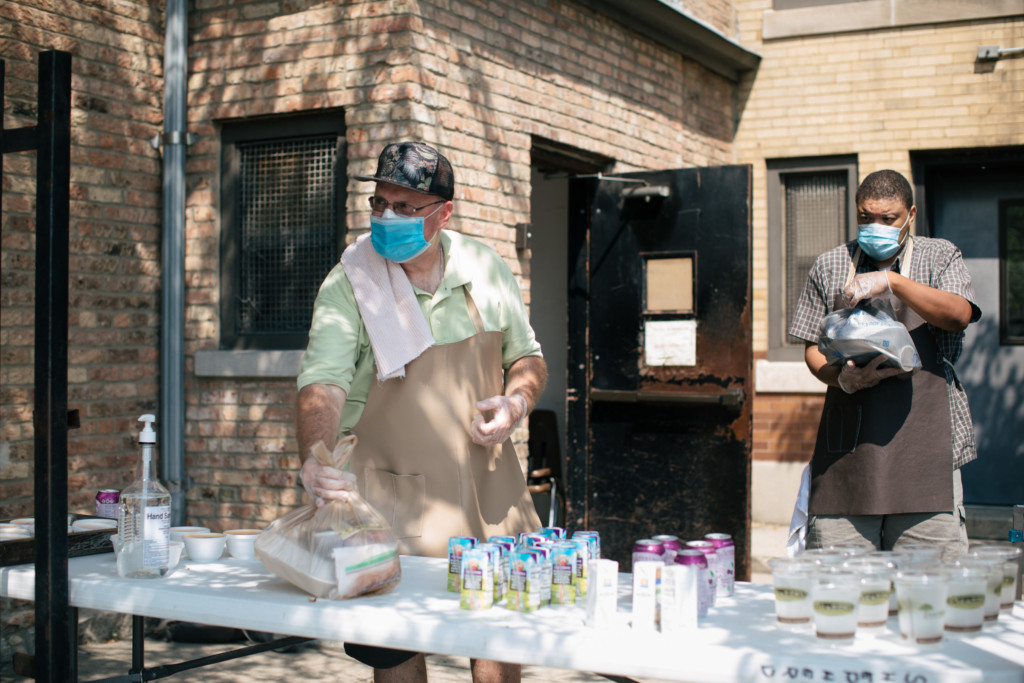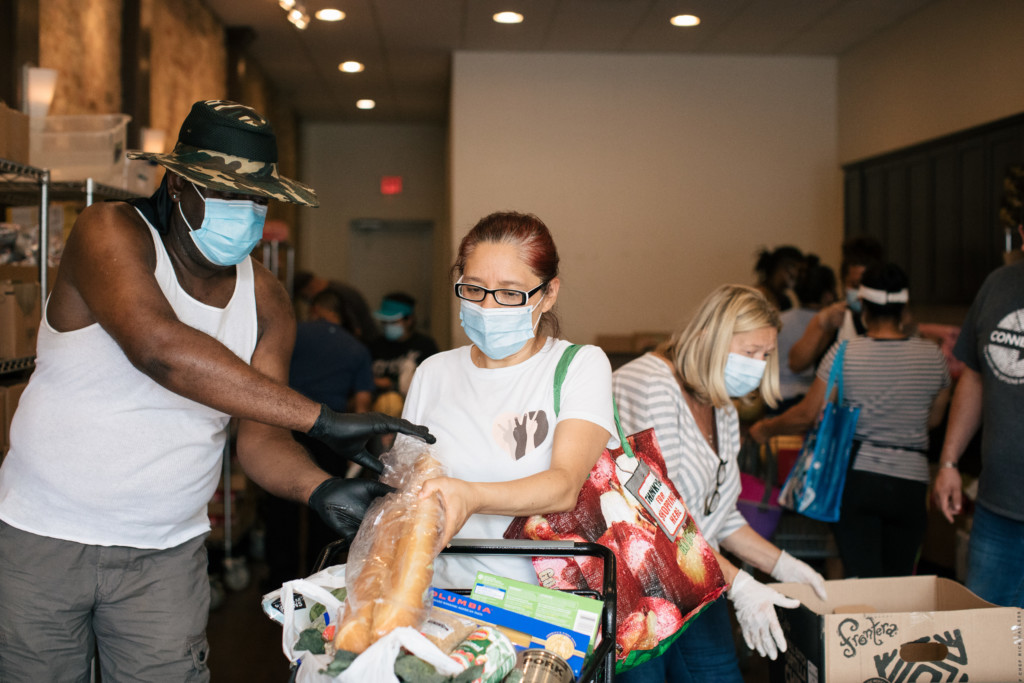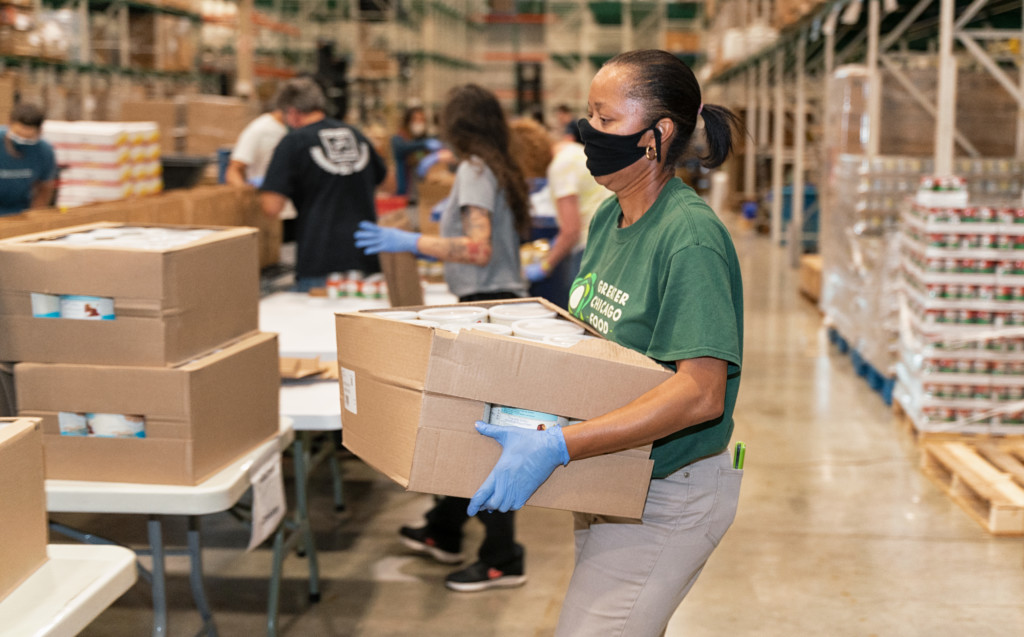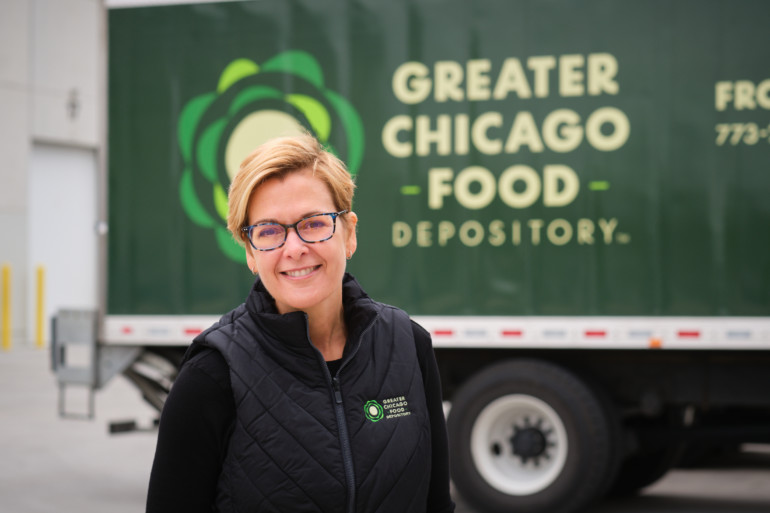The need for food across Chicagoland has stunned Greater Chicago Food Depository (GCFD) Executive Director and CEO Kate Maehr, but it has never disheartened her.
“Every time I go out to a distribution, I’m just struck that every single person standing in line is a person with a life, with a family, with a story—and those lines just go on for blocks and blocks,” Maehr said.
Maehr has held her current title since 2006, but her career with GCFD began in 1996 as part of its external affairs team. She also serves as a board member for Feeding America and was appointed co-chair of the recently rebooted Illinois Commission to End Hunger, among other affiliations.
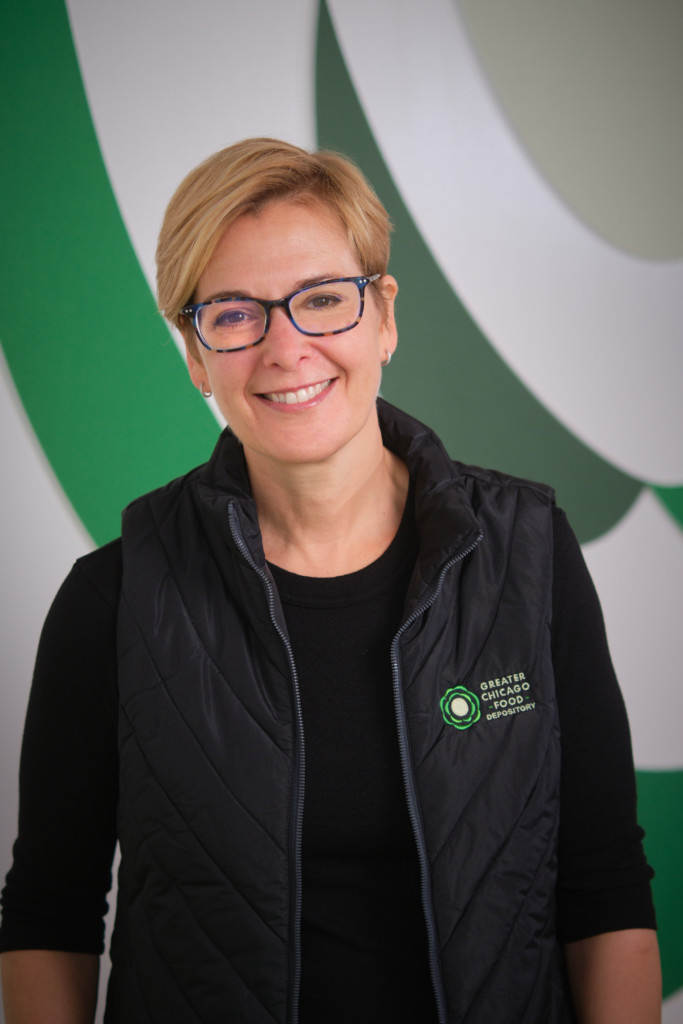
In 2020, the need for GCFD’s tireless efforts to end hunger was imperative. In March, the organization was asked to co-lead the city’s emergency food response amid the coronavirus pandemic. By early April, the number of clients served by the organization climbed 120 percent above January’s figures, Maehr recalled, characterizing the need as “wide and deep.”
After realizing COVID-19 was having a disproportionate impact on people of color, GCFD fostered new partnerships with trusted organizations to offer pop-up pantries on the city’s South and West sides. By July, the organization gave more than $2.3 million in grants, with 67 percent of those funds supporting African American and Latino communities in Cook County. In early October, the number of people relying GCFD had tapered off to roughly 50 percent above January’s figures, or about 1.2 million people.
The Greater Chicago Food Depository, like many consumers, saw shortages of needed supplies, and the fragility of that supply chain is something Maehr remains worried about.
Proposed changes that could restrict access to the Supplemental Nutrition Assistance Program are another significant point of concern, as is the long-term impact of food insecurity on children, Maehr said.
Even in a tumultuous year like 2020, though, Maehr was humbled and inspired by the countless volunteers who stood hand-in-hand with GCFD. For those volunteers as well as those on the receiving end, Maehr will continue to advocate, no matter what tomorrow brings.
“We do not have to live in a world where people struggle with something as basic as [access to nutritional] food,” Maehr said. “We do have the ability to change that, but it starts with our voice.”
